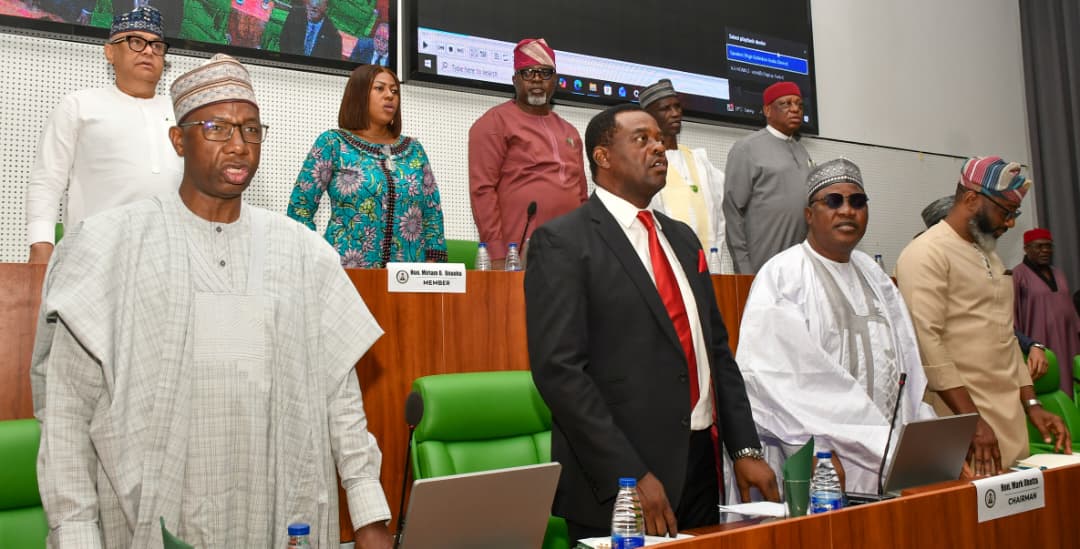The House of Representatives is set to investigate ₦12 trillion injected into Nigeria’s Development Finance Institutions (DFIs) in the past seven years

The House of Representatives has launched an investigation into the management of over ₦12 trillion injected into Nigeria’s Development Finance Institutions (DFIs) in the past seven years.
The House inaugurated an ad-hoc committee on Wednesday to probe the operations, funding, and performance of the DFIs amid growing concerns about their accountability and impact on the economy.
Chairman of the committee, Rep. Chidi Mark Obetta, said the probe aims to establish how public funds meant to drive industrialisation, agricultural development, SME empowerment, and infrastructural growth were utilised.
He revealed that preliminary findings and public reports indicate that inflows into DFIs—including government capital injections, budgetary allocations, bond issuances, concessional loans, and donor funding—amounted to over ₦12 trillion within the period under review.
“This figure remains indicative and subject to verification,” Rep. Obetta said, adding that the committee will demand audited and itemised inflow and utilisation data from each DFI.
Obetta said the investigation was prompted by rising public concern over the transparency and impact of the DFIs, which were established to bridge financing gaps not covered by commercial banks.
He commended the speaker and House leadership for setting up the committee, describing the assignment as central to Nigeria’s economic stability and growth.
Obetta listed institutions under scrutiny to include the Bank of Industry (BOI), Bank of Agriculture (BOA), Nigeria Export-Import Bank (NEXIM), Infrastructure Bank, Nigeria Incentive-Based Risk Sharing System for Agricultural Lending (NIRSAL), and the Development Bank of Nigeria (DBN), among others.
He said the committee’s mandate is to conduct a comprehensive review of the DFIs’ operations and funding mechanisms to determine whether they have fulfilled their mandates and whether resources have reached the intended sectors.
“We will examine measurable outcomes such as jobs created, industries supported, exports expanded, and livelihoods improved,” he said. “This is not a witch-hunt but a reform-driven process to strengthen institutional efficiency and accountability.”
The lawmaker said the investigation will be evidence-based and will involve engagement with DFI management, the Central Bank of Nigeria (CBN), the Federal Ministry of Finance, development partners, and beneficiaries.
He assured that the committee’s recommendations would be practical and reform-focused, aimed at repositioning the DFIs as true engines of inclusive and sustainable development.
“Together, let us ensure our DFIs become models of transparency, efficiency, and impact—institutions that truly empower Nigerians and build a more resilient economy,” he said.
Speaker Abbas: DFIs Have Failed to Deliver
Speaker of the House, Rep. Tajudeen Abbas, expressed concern over the poor performance of Nigeria’s DFIs, saying many have failed to achieve their objectives despite receiving trillions in public funds.
Represented by Deputy House Leader, Rep. Halims Abdullahi, Abbas said the institutions have not significantly improved the country’s Multidimensional Poverty Index, and their impact on small and medium enterprises “leaves much to be desired.”
“These institutions, which were meant to fill financing gaps left by commercial banks, have been bogged down by lack of transparency, political interference, and an unwillingness to innovate,” he said.
Abbas noted that the review was both timely and necessary, stressing that future budgetary allocations to underperforming DFIs would be reconsidered.
“The era of funding without clear justification, public benefit, or performance evaluation must come to an end,” the speaker warned. “Any institution that cannot justify its allocation through verifiable outcomes will face legislative action.”
He said the investigation would help the House enhance the DFIs’ effectiveness and ensure funds reach productive sectors rather than being trapped in bureaucracy or diverted to questionable ventures.
CBN, NEXIM Pledge Support
CBN Governor, Yemi Cardoso, represented by Ibrahim Hassan, pledged the apex bank’s full cooperation with the committee, saying the probe aligns with efforts to strengthen the development finance ecosystem.
Hassan noted that the CBN regulates and supervises DFIs such as the BOI, BOA, NEXIM, FMBN, DBN, and the Nigeria Mortgage Refinance Company (NMRC), ensuring they maintain capital adequacy, liquidity, and sound asset quality.
He commended the House for initiating the investigation, describing it as a step toward ensuring DFIs deliver on their mandate of inclusive growth.
NEXIM Bank Managing Director, Abba Bello, also welcomed the probe, calling it timely and crucial to repositioning DFIs for economic transformation.
“The DFIs in Nigeria should be the engines that propel economic growth,” Bello said. “Our performance must be measured not only by internal metrics but by the jobs we create, industries we strengthen, and exports we generate.”
He assured lawmakers that NEXIM Bank would provide all required documentation to aid the investigation.

